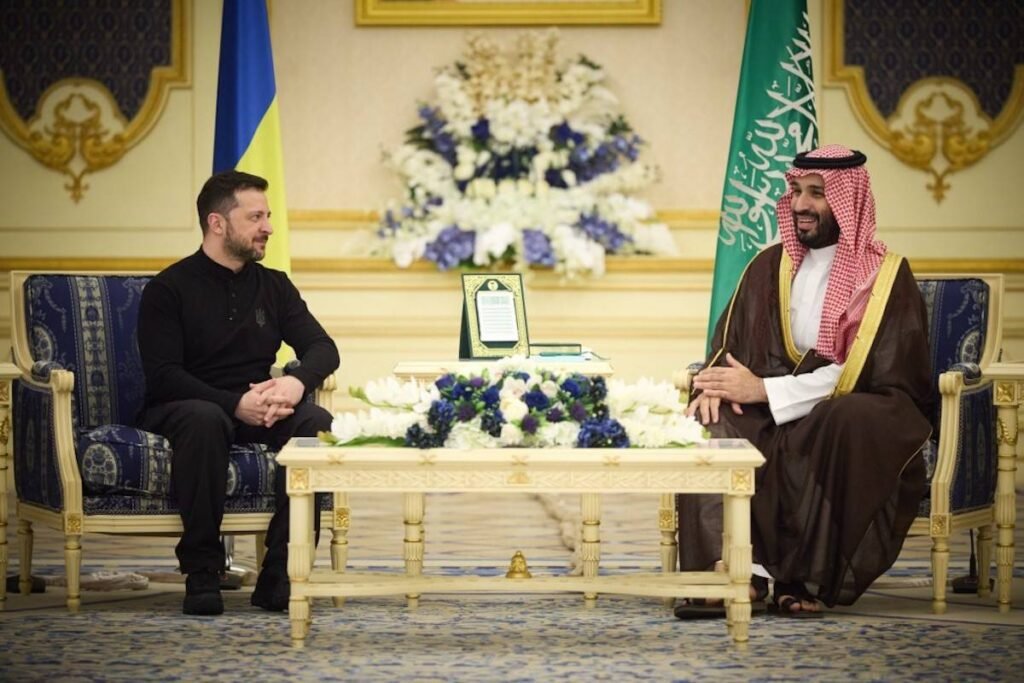In the modern geopolitical landscape, soft power has become a crucial tool for nations to expand their influence beyond military and economic might. The Gulf region, traditionally associated with oil wealth, has witnessed a transformation where nations like Saudi Arabia, the UAE, and Qatar have emerged as middle powers—leveraging diplomacy, culture, tourism, media, and sports to shape global narratives and enhance their international standing.
This article explores how these three Gulf states are strategically using soft power to redefine their global roles, examining their approaches, successes, and challenges in shaping a new era of influence.
The Rise of Soft Power in the Gulf
Historically, the Gulf Cooperation Council (GCC) nations relied on hard power—military alliances, economic strength, and energy dominance—to secure their interests. However, as global politics shift towards diplomatic engagement, cultural diplomacy, and technological innovation, Saudi Arabia, the UAE, and Qatar have emerged as leaders in soft power.

Each country has adopted a distinct approach to wielding soft power, using their unique strengths to shape global perceptions while advancing their national interests.
Saudi Arabia: The Custodian of Tradition Meets Global Modernization
1. Religious and Cultural Diplomacy
Saudi Arabia holds a unique soft power advantage as the custodian of Islam’s two holiest sites, Mecca and Medina. Through the annual Hajj pilgrimage, the kingdom exerts spiritual influence over millions of Muslims worldwide, strengthening its ties with the broader Islamic world.
Additionally, Saudi Arabia has focused on revitalizing its cultural heritage, investing in projects such as:
- AlUla Project – A major tourism and archaeological initiative to showcase Saudi’s ancient civilization.
- Diriyah Gate Development – A heritage site that highlights the kingdom’s historical roots.
2. Sports and Entertainment Diplomacy
Saudi Arabia has aggressively expanded into sports and entertainment, using it as a means to reshape global perceptions of the country. Key investments include:
- Hosting high-profile sporting events like Formula 1, boxing championships, and WWE matches.
- Acquiring English football club Newcastle United, reinforcing its presence in global football.
- Investing in LIV Golf, challenging traditional golf institutions and creating new alliances.
The Riyadh Season entertainment festival has also positioned Saudi Arabia as a leading entertainment destination, attracting global artists and influencers.
3. Global Investment and Vision 2030
Under Vision 2030, Saudi Arabia is investing billions into technology, tourism, and culture, creating a diversified economy that reduces dependence on oil. Through the Public Investment Fund (PIF), Saudi Arabia is making strategic investments in global brands, further embedding itself in international business circles.
UAE: The Global Connector and Innovation Hub
1. A Leader in Diplomacy and Humanitarian Aid
The UAE has established itself as a trusted mediator in global diplomacy, positioning itself as a neutral, business-friendly nation with strong ties to the East and West. Key diplomatic successes include:
- Abraham Accords – Normalizing relations with Israel, reshaping Middle East geopolitics.
- Humanitarian aid leadership – The UAE ranks among the world’s top donors of foreign aid per capita, reinforcing its image as a benevolent power.
2. Cultural and Tourism Powerhouse
Dubai and Abu Dhabi have become icons of cultural diplomacy, attracting millions of tourists through:
- World-class events like Expo 2020, showcasing innovation and global collaboration.
- Architectural marvels like the Burj Khalifa and the Louvre Abu Dhabi, reflecting the UAE’s commitment to arts and design.
- Museum and art initiatives that bridge Eastern and Western cultures.
The UAE’s focus on space exploration (through the Emirates Mars Mission) and technology-driven initiatives has further solidified its reputation as an innovative leader in the Arab world.
3. Global Business and Media Influence
Dubai and Abu Dhabi have positioned themselves as business and media hubs, hosting international firms and events that reinforce their global connectivity. The UAE is home to:
- Free zones that attract global tech companies and investors.
- Major news networks like Al Arabiya and Sky News Arabia, shaping regional narratives.
- Leading airlines (Emirates, Etihad) that enhance the UAE’s global reach.
By fostering a welcoming environment for multinational corporations and startups, the UAE continues to lead in economic soft power.
Qatar: The Media and Sports Superpower
1. Al Jazeera and Media Influence
One of Qatar’s strongest soft power tools is Al Jazeera, the globally recognized news network that has played a pivotal role in shaping Middle Eastern and global news narratives. The network’s wide reach and investigative journalism have positioned Qatar as a major voice in international discourse.
2. Sports as a Global Soft Power Tool
Qatar has used sports diplomacy to gain international prominence, with its hosting of the 2022 FIFA World Cup marking a historic moment for the Arab world. Other key investments include:
- Ownership of Paris Saint-Germain (PSG) through Qatar Sports Investments (QSI).
- Sponsorship deals with top European football clubs and leagues.
- Bid to host global sporting events in athletics, tennis, and motorsports.
3. Strategic Diplomacy and Mediation
Despite its small size, Qatar has played an outsized role in regional and international diplomacy by:
- Acting as a mediator in conflicts, including the Afghanistan peace negotiations.
- Maintaining balanced relations with global powers, including the U.S., Iran, and Turkey.
This diplomatic flexibility has allowed Qatar to establish itself as a key peace broker in global affairs.
Comparative Analysis: Saudi Arabia, UAE, and Qatar’s Soft Power Strategies
| Category | Saudi Arabia | UAE | Qatar |
|---|---|---|---|
| Diplomacy | Religious influence, Vision 2030 partnerships | Mediator, Abraham Accords, humanitarian aid | Conflict mediation, balanced global relations |
| Culture & Tourism | Historical sites, luxury tourism | Expo 2020, museums, architecture | Global conferences, arts funding |
| Media Influence | Saudi-owned outlets (Al Arabiya, MBC) | Sky News Arabia, global media hubs | Al Jazeera’s global reach |
| Sports & Entertainment | F1, LIV Golf, Newcastle United, Riyadh Season | Expo 2020, major sporting events | FIFA World Cup 2022, PSG ownership |
| Technology & Innovation | NEOM, tech hubs, green energy projects | Space exploration, AI, fintech startups | Education, research, and climate initiatives |
Conclusion: The Future of Gulf Soft Power
Saudi Arabia, the UAE, and Qatar have each developed unique soft power strategies, positioning themselves as influential middle powers in global affairs. By leveraging culture, sports, media, and diplomacy, these nations are shaping global perceptions and expanding their influence beyond traditional hard power tactics.
As these Gulf nations continue to evolve, their investment in soft power will play a critical role in defining their long-term success on the global stage. Whether through sports, technology, media, or diplomacy, Saudi Arabia, the UAE, and Qatar are setting new standards for how middle powers can effectively project influence in the 21st century.
Do follow Uae stories for more Updates













